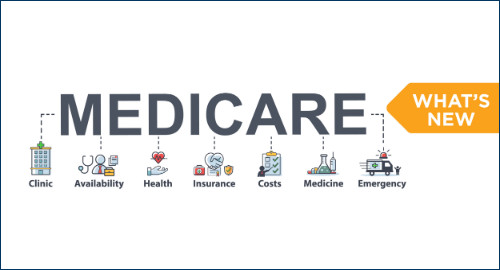What you need to know about over-the-counter hearing aids
The following content was provided with the help of TruHearing, Aspire Health Plan’s partner for affordable hearing healthcare services and hearing aids.
In August 2022, the FDA delivered a historical ruling expanding the options for seniors who need hearing aids. There are now two classifications of these devices: over-the-counter (OTC) and prescription. A few key differences may impact which type of hearing aid you choose, including costs and Medicare coverage. Here’s some important information that can empower you as you navigate the buying process!
What are OTC hearing aids?
OTC hearing aids are non-prescription hearing aids for adults with self-perceived mild-to-moderate hearing loss. People with mild hearing loss can’t hear sounds like whispering, refrigerators running or water babbling in a stream. Be sure to talk to your doctor if you notice that you can’t hear any of these sounds or are experiencing other hearing loss.
OTC hearing aids can be purchased without the supervision, prescription or involvement of a licensed hearing care professional. This means that hearing loss assessment, device selection, smartphone app setup, fitting and adjustments are all done by the consumer
OTC hearing aids are a good option if you’re comfortable navigating the selection and fitting process on your own using smartphone technology. Just be sure to note that your experience with OTC hearing aids may be different than the experience you would get with provider supervision.
What are prescription hearing aids?
Prescription hearing aids address all levels of hearing loss, from mild to profound. Prescription hearing aids are customized to a person’s specific hearing loss by a trained hearing care provider. They have fast processing speeds, so sound quality is more natural and distortion is minimized.
How can I get OTC hearing aids?
Aspire provides coverage for diagnostic hearing exams, and offers an optional supplemental benefit that provides c allowances toward hearing aids. Consider your options for paying:
- Out of pocket: Depending on your plan, out-of-pocket costs for prescription hearing aids purchased with a benefit like those from your MA plan may be comparable to OTC hearing aids.
- Medicare Advantage (MA) plans: Some MA plans like Aspire offer coverage for either prescription or OTC hearing aids. Get in touch with our team to learn more by calling
(855) 570-1600 (toll free) or (831) 574-4938 (local) TTY users call 711.
How can I get prescription hearing aids?
Depending on your plan, out-of-pocket costs for prescription hearing aids purchased with a benefit like those provided by your MA plan may be comparable to OTC hearing aids. However, prescription hearing aids can be more likely to better address your hearing loss.
We hope this information will be helpful as you work to find the best solution to your hearing needs. To get more help deciding which type of hearing aid may be the best solution, you can call a TruHearing hearing consultant at (833) 312-1272. If you’d like to learn more about the coverage Aspire provides, call us at (855) 570-1600 (toll free) or (831) 574-4938 (local) TTY users call 711.
H8764_MKT_ HearingAids_Blog_0123_M










